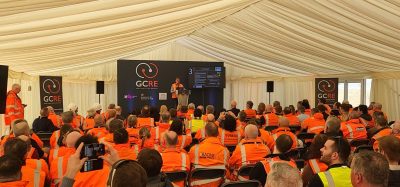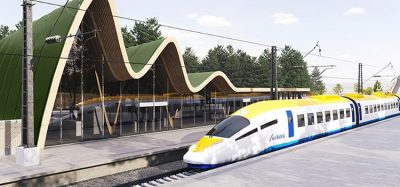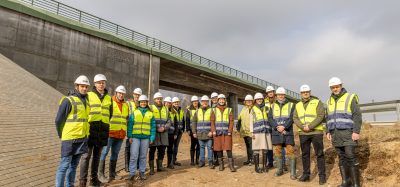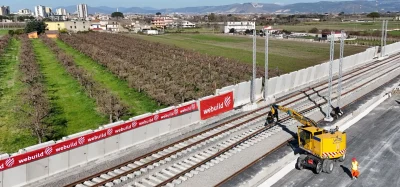Investment in improved safety and regularity
Posted: 29 January 2008 | | No comments yet
Infrabel, the Belgian railway infrastructure management company, is investing in the modernisation of its network control centres in a number of stages. The new Traffic Control centre and the concentration of signal boxes are two important projects in this context. In an interview with Global Railway Review, Eddy Clement, Director General of Infrabel Network, talks about Infrabel’s planning, strategy and investment regarding this modernisation project.
Infrabel, the Belgian railway infrastructure management company, is investing in the modernisation of its network control centres in a number of stages. The new Traffic Control centre and the concentration of signal boxes are two important projects in this context. In an interview with Global Railway Review, Eddy Clement, Director General of Infrabel Network, talks about Infrabel’s planning, strategy and investment regarding this modernisation project.
Infrabel, the Belgian railway infrastructure management company, is investing in the modernisation of its network control centres in a number of stages. The new Traffic Control centre and the concentration of signal boxes are two important projects in this context. In an interview with Global Railway Review, Eddy Clement, Director General of Infrabel Network, talks about Infrabel’s planning, strategy and investment regarding this modernisation project.
The Network division within Infrabel is responsible for organising, coordinating and controlling train traffic on the Belgian railway network. It also monitors the safety, flow and regularity of railway traffic and guarantees high-quality dissemination of information to customers.
On the basis of this approach, Infrabel is constantly making targeted investments in the entire Belgian network with a view to modernisation and expansion of its railway infrastructure and installations. The new Traffic Control (first stage) and the concentration of signal boxes (second stage) fit in perfectly with this Infrabel strategy for a systematic increase in safety and regularity of train traffic on its railway network.
Traffic Control, one single control centre
Since the end of 2006, Infrabel has operated Traffic Control, the throbbing heart of the new Belgian communication centre for railway transport. This new centre monitors the flow of train traffic in real time and takes all necessary corrective measures in case of incidents on the network. It has all the know-how required to immediately inform customers on a day-to-day basis. Traffic Control comprises the former national (Brussels) and regional dispatching centres (Ghent, Antwerp, Namur and Mons).
As Traffic Control will guide train traffic across all lines of the Belgian railway network, an adequate personnel structure under the direction of senior traffic controllers is a prerequisite. The organisation consists of various work stations divided over four teams of traffic controllers. They are responsible for monitoring train traffic in a particular zone of the network. Traffic Control also includes an info cell which ensures the distribution of quality information and a team which controls the trainpaths in real time.
An ultra-modern traffic control centre in Europe
Equipped with high-tech systems, Traffic Control is one of the most advanced traffic management centres in Europe. For instance, the graphic display affording an overview of train movements adjusts automatically as the train progresses on its route. The system works with an extensive train database and information on the composition of the trains and the punctuality of train traffic. For their communication, which is fully recorded, the traffic controllers work with modern equipment, including touch screen consoles.
Traffic Control is based in Infrabel’s main building in Brussels, straight opposite the Brussels-Midi station. Work on the centre started in January 2006 and was completed in January 2007. The total floor area of the entire communication centre is 3,000m2, of which 600m2 is devoted to Traffic Control. Thanks to functional and modern architecture, a workplace adapted to differing needs was created, yet without neglecting aesthetics. Moreover, Infrabel has made adequate investment in working conditions and ergonomics to enable personnel to work at highly functional work stations.
€7.5 million for real time train traffic management
Infrabel has made a total investment in its traffic coordination centre of €7.5 million (design, construction, equipment). 156 people work in the new Traffic Control centre which, as recently as November 2007, received an award for innovative design and IT applications. The centralisation of traffic control services is a first step towards even better control of train traffic in real time, enabling the swift re-establishing of normal conditions on the network during any possible incidents.
Concentration of signal boxes
A second stage in the organisation of train traffic is the concentration of signal boxes (the centralised installations for controlling points for a particular zone of the network). By the end of 2012, the Belgian railway network will have no more than 31 ultramodern control centres, plus 11 centres that can be remotely controlled (see Figure 1 on page 22). In 2005, Infrabel started a progressive programme of concentrating signal boxes, which at the time still numbered 368. At present, the number of signal boxes has been brought down to 290.
Since the early 90s, monitoring of train traffic has been continually modernised in line with recent IT developments. One of the principal innovations has without any doubt been the introduction of the computer-controlled EBP-PLP unit (Elektronische Bedieningspost – Poste à Logique programmée) which has replaced the old electromechanical techniques. The new system makes it possible to drastically reduce the number of signal boxes.
High-tech equipment and reliable signalling installations
By concentrating signal boxes, Infrabel can invest in modern, high-tech equipment which also leads to greater reliability of signalling installations while being conducive to improving safety and regularity. The concentration also leads to a substantial improvement in working conditions and operational efficiency.
Of the 31 modern control centres, more than ten signal boxes are currently under full development or are already partially operational. A special integrated signal box in Traffic Control monitors train traffic on the Brussels-French border and the Leuven-Ans high-speed lines. Train traffic on the Antwerp-Dutch border and Liège-German border high-speed railway lines will be monitored from the new signal boxes of Antwerp and Verviers.
€670 million for phasing in signal boxes
The new signal boxes will be progressively phased in in accordance with Infrabel’s strategy of phased implementation to be able to immediately benefit from the improvement without having to wait for the completion of the large-scale projects. While the signal boxes are being phased in, Infrabel will permanently ensure continuity of train traffic on the Belgian railway network.
In May 2007, Infrabel concluded a contract with BELGOSIGNAL, a joint venture formed between Alstom Belgium and Siemens for the further supply and installation of equipment for the new signal boxes. This contract represents an investment by Infrabel of €414 million and involves the recruitment of additional personnel at Infrabel and the Belgian suppliers. Infrabel’s total investment for the concentration of signal boxes – including the above-mentioned contract – is €670 million.
Conclusion: phased modernisation fits in with Infrabel’s strategy
The phased concentration of the 368 signal boxes to reduce their total number to 31 ultra-modern signal boxes and the merger of the five dispatching centres into a single Traffic Control (operational since December 2006) are two of Infrabel’s major strategic priorities, set out in its BRIO strategic plan (Belgian Railway Infrastructure Objectives).
Through this phased modernisation, Infrabel’s objectives are threefold: safety, punctuality and high-quality information about train traffic on the Belgian network. This strategy benefits the network, travellers, personnel and Infrabel itself.
About the author
Eddy Clement
Mr. Eddy Clement has been the Director General of Infrabel’s Network Division since May 2007. Mr. Clement is a Civil Engineer and also studied Business & Middle Management. Mr. Clement began his career in the railway industry in 1976 as Quality Control and Purchasing Engineer at SNCB. He held other positions such as Head of Personnel and Management Purchasing Department, Head of Rolling Stock Purchasing Department and General Manager of Purchasing & Logistics. Mr. Clement is also a Member of Infrabel’s Management Committee and Director of TUC RAIL.








